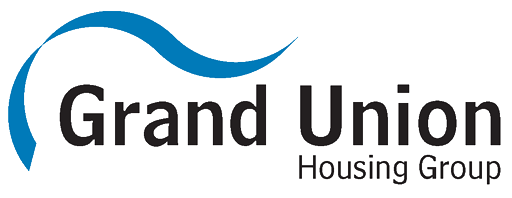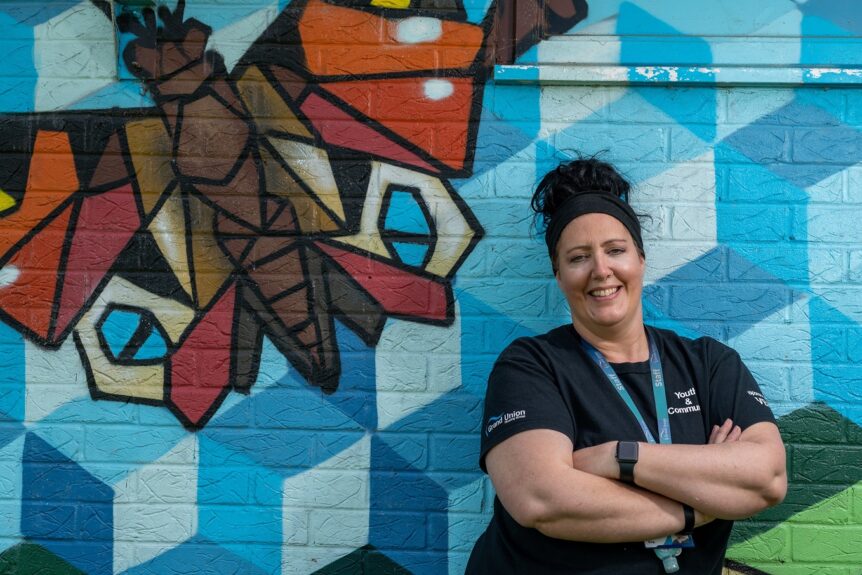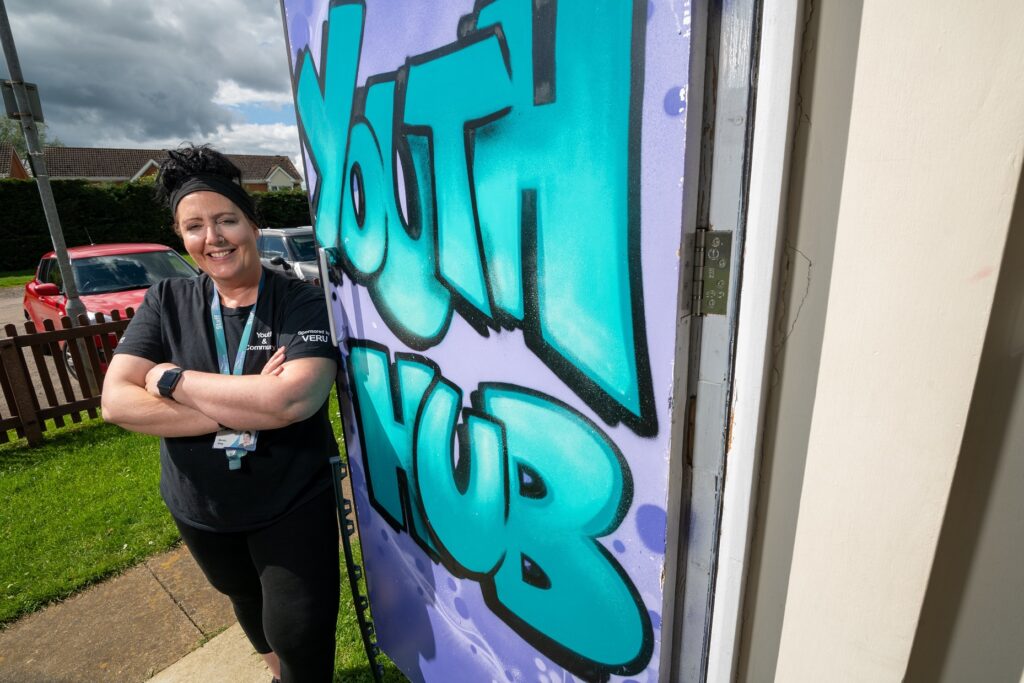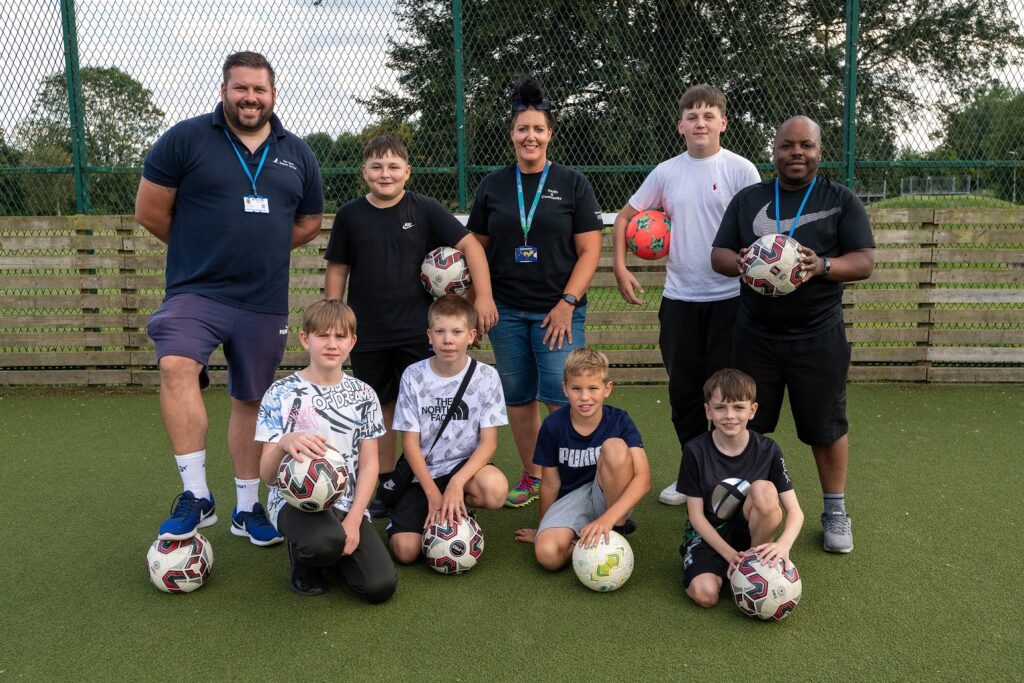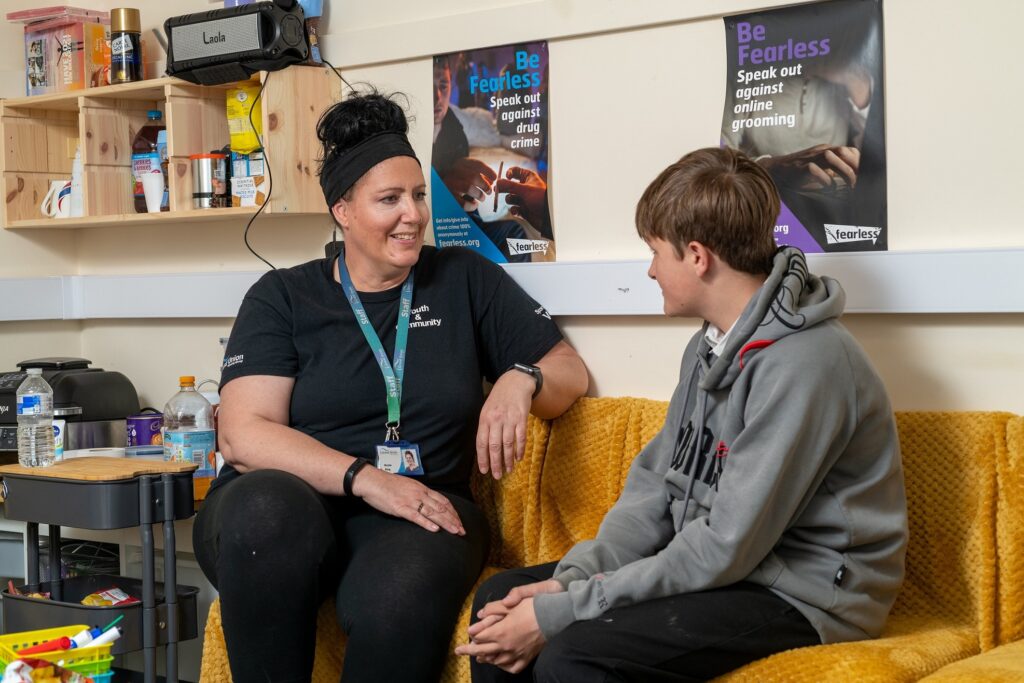Nicola King, Grand Union’s Youth Participation Coordinator, works with young people across our areas of operation, to support them, and give them an opportunity to make a difference in their community.
Nicola is part of a wider Healthy Neighbourhoods team which helps to improve the lives of those who live in our region. She says: “My role is really rewarding. Others’ achievements, however small, bring me joy.”
Having been a youth worker in one way or another for over 30 years, Nicola’s role now is very different to her first job, that of a kitchen assistant in a children’s home in Hertfordshire.
“I started out in the kitchen, but helped out in the attached school from time to time. Then I got asked to join the care team as a residential social worker and take on some shifts on a part-time basis. Shortly after that, I joined the care team full-time.
“I worked at the children’s home for seven years, gaining a huge amount of experience in lots of ways, so I’m really not fazed if anything kicks off these days.
“Before joining Grand Union in 2006, I’d been working for a youth service in Bedfordshire, and had been at University undertaking a diploma in Youth and Community Studies.
“I completed my degree when I joined Grand Union, studying Community and Youth Development, a one-year course for those who’d already done the diploma.
“I love studying, I love how it helps your progression. The more experience I get, the more I can put into studying and the more I understand.”
Nicola’s busy programme for young people, of social, leisure and fitness activities, together with projects to help tackle antisocial behaviour, drug and alcohol issues and mentoring work, keeps her on her toes.
“During the school holidays, we run activities for young people aged 8 to 17 – our programme can range from sports like football, basketball, futsal and swimming, to wellbeing and holistic therapy, like mindfulness and aromatherapy, as well as arts and crafts, cooking, creative writing, graffiti projects and even DJ workshops.
“The activities can often be a diversionary tactic to young people getting involved in antisocial behaviour. Our programmes have an impact not just on the young person, but there’s a ripple effect through school, their home and the community, producing positive behaviour and outcomes. So they’re having fun and socialising, but we’re reducing antisocial behaviour at the same time.
“Working with young people in this way, we can drip feed to them the impact of their actions and the impact on Grand Union. They develop a sense of responsibility and become more self-aware, preventing issues, disputes and potential evictions.
“To be able to offer these activities, I often have to apply for funding from local organisations, such as Central Bedfordshire Council, the Police & Crime Commissioner and the Bedfordshire Violence and Exploitation Reduction Unit (VERU).
“At the moment, we’re running these programmes across the Bedfordshire region, and in Milton Keynes, but we’re hoping to be able to roll out programmes in South Northants in the future.”
Nothing pleases Nicola more than to see young people’s development.
“When you see someone turn up on their own who was initially too scared to come without bringing a friend; when you see someone join in an activity, when they weren’t socialising at all at first; when you see someone trying something new – these are all positives for me.
“If someone’s shy at trying something, like cooking, we’ll show them a way that makes it easy for them to have a go. It’s great when the next time they see you, they show you a photo of what they’ve done at home. Small things can make a big difference to someone.
“One young person, who’d once been on a leadership programme at Grafham Water through a partnership with the Rotary Club, recognised me some years later and said: ‘If it wasn’t for you, my life would have been really messed up.’ So sometimes there are instant results, and sometimes it’s years later when I see it in people.”
Nicola’s role has more recently become more of a mentoring one. The mentoring support the young people receive, together with the activities they get involved in, means there’s real development to be seen in many of the individuals.
“I work in partnership with two self-employed youth coaches/support workers and a small group of volunteers, and we now work in schools too. The community mentoring support continues when the schools are shut, so no-one misses out.”
“Even the pandemic didn’t stop me. I continued with the mentoring, by doing it online or carrying out home visits and sitting in gardens.
“I gave out games and activities, to keep the children occupied and active, and we could play them together, too. They were really popular!
“We’re accustomed to reviewing what we’ve been doing every three or four months and see if there are any themes, such as antisocial behaviour, parenting, mental health, and then this drives what we’ll do the following year, so I’m used to adapting what we do and how we do it.
“The cost-of-living crisis we’re currently experiencing means that families don’t always have a lot of money leftover to be able to entertain their children throughout school holidays, so we’re keeping the children busy and entertained and parents are thanking us for it. I never used to hear that, but I’m hearing it more and more now.
“Something we’re looking to do more of is working with one support worker who can offer AQA qualifications to our young people – whether you’re 9 or 99, there are over 4,000 modules that can be studied! We’re hoping that we can put some young people through the youth work modules too, so we can grow our future support workers and mentors.”


